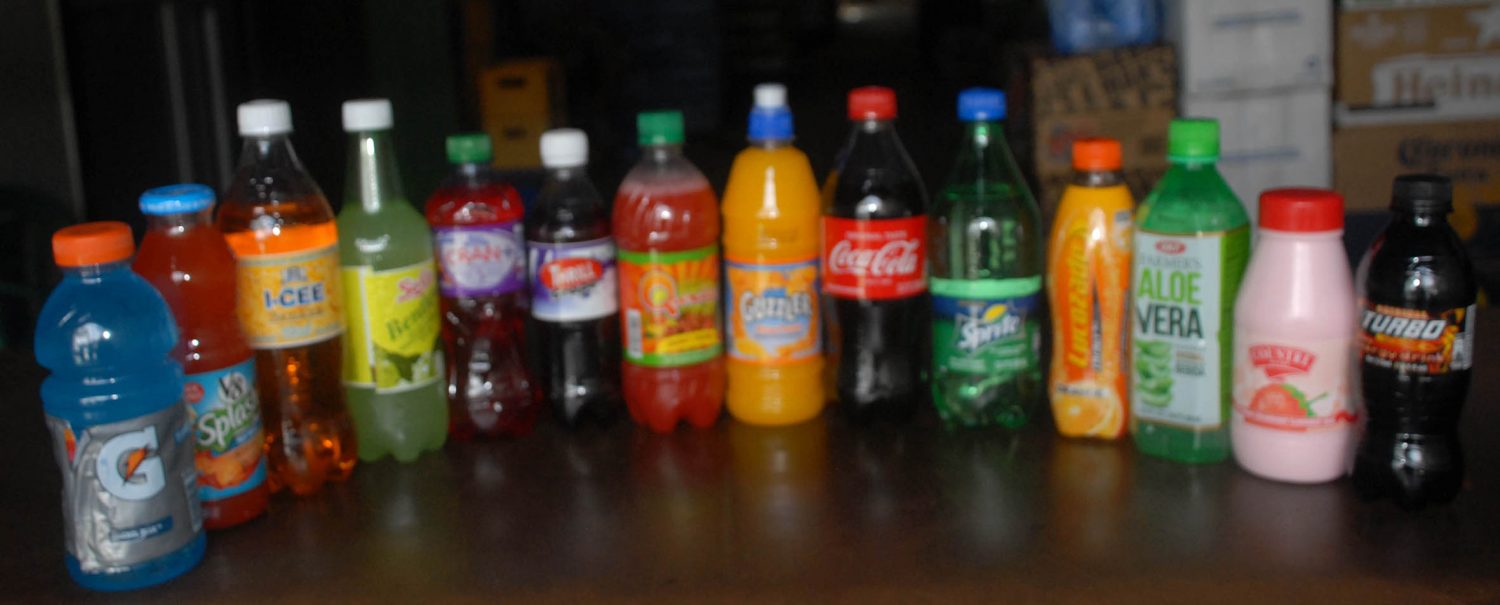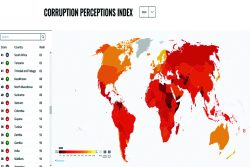Even as the World Health Organization (WHO) intensifies its global lobby for a sharp reduction in the sugar content of popular soft drinks on health grounds, the regional soda industry is seizing hold of the issue as a selling point for its own sugar-based beverages, through claims that they have moved to reduce sugar levels in their products.
Last week, two of the region’s major beverage companies, Trinidad and Tobago’s S.M Jaleel, the manufacturer of Busta, widely sold across the region and the Jamaican company WYNSYNCO Group which distributes its own BIGGA brand and also bottles for Coca Cola laid competing claims to being ‘top of the pile’ as far as reducing sugar content in soft drinks is concerned.
The Busta manufacturers claim that it has now positioned itself ahead of its regional rivals on account of having reduced its sugar content by 25% in each bottle of soda. But the WYSYNCO Group quickly retorted that its own BIGGA had made an even more significant cut in sugar content, a claim which it advertised widely on social media.
Increasing WHO insistence that a 20% tax on soft drinks be levied by governments in an effort to force sugar content down has galvanized regional soft drink manufacturers to pronounce on their respective ‘less sugar’ policies.’
Local beverage company Banks DIH. Ltd. has also been keen to be regarded as being active in the lobby to push sugar levels in soft drinks down with company Chairman Clifford Reis declaring at Banks’ January 2018 Annual General Meeting that steps were being taken to lower the risks which its beverage products might pose to diabetics. The company, Reis said, was mindful of the possible consequence of a sugar tax. Reis reported that Banks was working with its international partners to draw attention to the consequences of sugar consumption, asserting that there were “strong discussions” ensuing among beverage companies regarding the use of sugar in the light of the diabetes issue. He alluded to “certain principles” that the company had taken in the matter of treating with the issue of sugary drinks. Those reportedly include the cessation of soft drinks sales to schools – even though vendors outside schools still make the popular brands of soft drinks available – and the provision of information on labels of bottles regarding the sugar content in soft drinks.
Banks DIH Ltd. manufactures Coca Cola and Sprite under licence for Coca Cola International and Reis told the Annual General Meeting that the issue of adhering to regulations governing children or face the ‘sugar tax’ consequence being pushed by the WHO was a consideration that the soft drinks industry had to bear in mind.
The WHO’s vigorous sugar tax lobby may have created a window of opportunity for the regional beverage industry with vendors in some countries, including Guyana, popularizing beverages made from local fruit though sugar is added to some of the mixtures. Fruit drinks have become a commonplace part of snack packs and lunch kits given to children by their parents and these have generally been found to be more economical than carbonated drinks though this newspaper has been told that there is no official beverages policy applying to local schools.
Citing obesity in children as a concern, Trinidad and Tobago last month announced that it was placing a ban on soft drinks at all government and government-assisted schools.
Last week, well-known Jamaican businessman William Mahfood who is Chairman of WYSYNCO was quoted in the media as saying that the company is the largest manufacturer of ‘low and zero sugar-added’ products in the Caribbean, asserting that in recent times the company had launched reduced sugar sodas, including Sprite and Schweppes, with 25 per cent less sugar, and Coca Cola Zero sugar products.
The increase in the regional decibel level over sugar levels in soft drinks consumed in the Caribbean comes in the wake of last month’s introduction of a sugar tax by Britain under which drinks containing five grammes of sugar per hundred ml will face a tax rate of 18 pence per litre while those with more than eight grammes per hundred ml will face a rate of 24 pence per litre.








